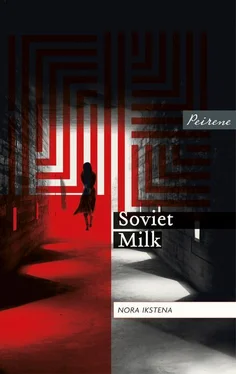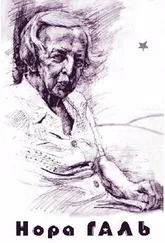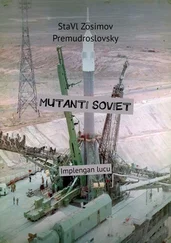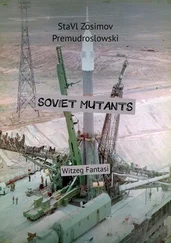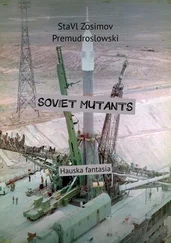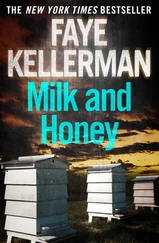My daughter was busy in the kitchen. For the first time in days the enticing smell of food invited me to get up and dress.
‘I doubt Jesse will come again,’ I said from my room. ‘You too will soon stop coming.’
‘Mamma,’ my daughter called back from the kitchen, ‘now, you can’t give up just like that. I’m stewing ribs with sauerkraut. Before the New Year your stepfather queued at the butcher’s for hours, and we bought the sauerkraut in the market. They send their best wishes to you, and also a little gift.’
Stewed ribs and sauerkraut. A gift. The small things in life. I felt a pang of pain at the thought.
With great effort I put on warm trousers and a jacket. I had already hurt Jesse, my good, faithful friend. I didn’t want to hurt my daughter too.
She was quietly humming in the kitchen. Just as Jesse did, she was breathing life into it. The pot was simmering away. Warmth emanated from the wood stove. The coal and the ribs in the sauerkraut wafted their aroma.
‘Mamma, the coals are ready. Let’s put in potatoes in their skins. Do you have potatoes?’
‘Potatoes? Maybe. If Jesse brought them, maybe we have some.’
My daughter exclaimed happily, ‘Look! Here are some in the pail in the pantry. I’ll wash them.’
I sat down at the kitchen table, lit a cigarette and gazed at my daughter’s movements. They were womanly and domestic, joyful and considered. How she raised the pot’s lid and tasted the contents, how she added salt, how she scrubbed the potatoes and lined them up on a neatly folded towel to dry. How she organized the dishes, knives and forks on the table, how she put butter in the small dish, and the candle and spruce branch in a tiny vase.
We sat at this festive table in this island of our lives. She talked enthusiastically about her school, about the wunderkind and Teacher Blūms, who was the cleverest person in the world.
‘Mamma,’ she said, ‘do you remember how you made me up to be two people – a split personality – for our school carnival? Now I really am a split personality. One half is taught at school, the other is taught by Teacher Blūms.’
Suddenly she became embarrassed. She asked, ‘Mamma, will you be offended if I tell you something?’
‘I won’t be offended.’
‘Teacher Blūms took us to an abandoned church, where we saw a bell that had lost its clapper. Afterwards he asked what we thought about the bell.’
‘What did you answer?’
‘I said that the bell reminded me of you. Everyone was silent and I didn’t have anything more to say. It was quite a dreadful silence, but I couldn’t explain briefly why that bell reminded me of you. That’s why I kept silent.’
‘And why did the bell remind you of me?’
‘Because it often seems to me that someone has stolen your joy in life. They’ve torn it out of you like that bell’s clapper. And you can’t ring any more – just like the bell. Are you offended?’
I gazed at her. My flesh and blood. Her longing for life was stronger than the evil that gnawed on me.
‘You’re not offended?’
‘No, of course not. You’re my joy.’
After the meal we dressed warmly and went outside. It had snowed for three days. The bright sun covered the white earth with its veil. We headed for the river down our accustomed path.
‘Along the way let’s stop by Jesse’s,’ my daughter said. ‘Jesse is a good person and no one should hurt her.’
My daughter threw a snowball at a window of Jesse’s modest house. After a moment she came out, warmly wrapped and happy to see us.
‘Jesse, what a lovely day!’ my daughter called out brightly. ‘Let’s go to the river.’
We went as a threesome. My daughter walked in the middle, her arms around the two of us.
The golden ball of the sun rolled out over the white river. We stood dumbstruck, moved by the radiant silence.
Then my daughter exclaimed, ‘Let’s slide on the ice! Mamma, Jesse, let’s slide!’
She grabbed our hands and we raced for the river. We slid back and forth until we collapsed in the soft snow. For a moment all three of us lay there, holding hands. Gazing at the sun.
*
After the winter holidays at my mother’s, I continued to attend Teacher Blūms’ group and to distance myself from the school curriculum. This began to bring down my high marks. My form teacher was concerned. I promised to pull myself together. My grandparents were also worried. Had I too much to do – with the school and the cultural history group as well? No, I insisted, everything was fine. Privately I fretted about one thing: that my form teacher and my family might start to look askance at Teacher Blūms. I forced myself to master the school curriculum. I learned all that foolish history and social studies, wrote required compositions, became a model of obedience in military studies, somehow scraped through in chemistry, physics and algebra – and my grades began to improve once more. All this in aid of a single objective: Teacher Blūms had promised to take us to Leningrad and to the Hermitage during the spring holiday. If I received a good report, no one would object to the trip. Grandmother sighed, because she remembered how badly Leningrad had turned out for my mother.
‘Please stop,’ I said to her. ‘Don’t ruin the trip I’m so excited about.’
The trip was a good excuse for not visiting my mother during the spring holiday. I wrote to her explaining that a wonderful trip was on the cards for me – to Leningrad. She sent me a postcard with a view of the River Neva and its bridges, surely from her time in Leningrad. On it were only two sentences: ‘Have a wonderful trip. My greetings to Neva and Teacher Blūms.’
I could hardly believe it, but it did happen. On the second day of our spring holiday, we were sitting in a second-class carriage on the Riga–Leningrad train. I had studied until I was sick to my stomach and Teacher Blūms had kept his word.
The next morning, having hardly slept, we headed straight for the Hermitage. We stood at the end of an impossibly long line, ready to draw on all our reserves of patience, for it was very cold. Beside us, a stream of foreigners flowed rapidly into the building. They had arrived in comfortable buses and were welcomed inside without spending any time out in the cold. As we queued and froze, we took turns to leave the line to hop and run about a bit. It was well past lunchtime when we got into the Hermitage.
After the first two exhibition halls my head started to spin. I found a bench and sat down. Here was a world to sweep you off your feet. I didn’t attempt to understand Teacher Blūms’ descriptions. I just allowed his words and the paintings to flow through me like fine grains through a sieve, catching here and there, and sprouting in the fertile soil of my imagination.
Time stood still. We wandered through the halls as if possessed. Soon we were close to exhausted. Then I saw a brilliant green moon set in a black painting. I sat on the floor before the painting and could not leave. The painting drew me into its darkness and its light, which were fighting each other in the small, square-framed space. I was there between the green moon and the darkness into which everything vanished – me, my mother, my grandmother and step-grandfather, the hamster in its cage, the tiny clay figure I had made. Everything spiralled as if in a whirlpool, then vanished into darkness.
I came to my senses. Teacher Blūms was saying, ‘You fainted by the Kuindzhi.’ The frightened members of my group stood around me. The museum guards had brought a glass of water.
At night we went to see how the bridges are raised over the Neva. The bridge jaws gaped open and rose majestically to meet the star-filled heavens. Below flowed the river that I was to say hello to from my mother.
Читать дальше
